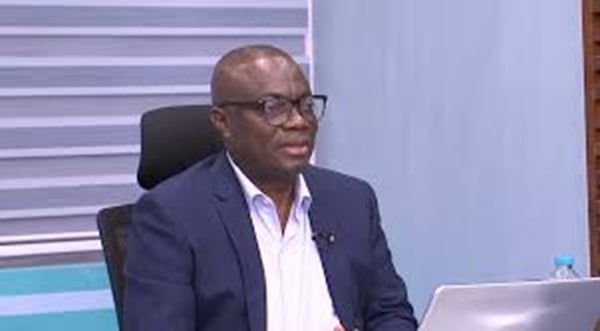A recent survey conducted by Global Info Analytics, led by Musa Dankwa, regarding the upcoming New Patriotic Party (NPP) presidential primary has come under scrutiny due to apparent inconsistencies in the presented data. Dr. Razak Kojo Opoku of the UP Tradition Institute has questioned the credibility of the poll, highlighting a discrepancy in the percentage totals that casts doubt on the overall integrity of the survey. The poll results, which ranked Vice President Bawumia as the frontrunner with 52%, followed by Ken Agyapong at 17%, and other candidates trailing significantly, failed to account for the entirety of the surveyed population. This mathematical discrepancy, Dr. Opoku argues, undermines the survey’s claimed 99% confidence level and ±2.44 margin of error.
The crux of the issue lies in the unaccounted-for percentage of respondents. The poll results, including the percentages for each candidate and those who were undecided or declined to disclose their preference, only totaled 92.7%. This leaves a significant 7.3% gap in the data, a discrepancy that raises serious concerns about the accuracy and reliability of the entire survey. Even if the three candidates who received 0% each were hypothetically granted 1% each, as Dr. Opoku suggests, the total would still only reach 95.7%, leaving a substantial 4.3% unexplained. This missing percentage represents a considerable portion of the surveyed population and cannot be simply dismissed as rounding error or statistical noise. The inability to account for such a significant portion of the respondents raises questions about the data collection methods, analysis, and overall reporting practices employed by Global Info Analytics.
The gravity of this discrepancy is further amplified by the poll’s claim of a high confidence level and a relatively small margin of error. A 99% confidence level indicates a high degree of certainty that the results accurately reflect the views of the population being surveyed. Similarly, a ±2.44 margin of error suggests a narrow range within which the true population values are likely to fall. However, the presence of a significant unexplained percentage of respondents directly contradicts these claims. The existence of a 7.3% gap suggests that the actual distribution of preferences could be substantially different from what the poll portrays, rendering the claimed confidence level and margin of error meaningless.
This discrepancy raises fundamental questions about the methodology employed by Global Info Analytics. Was the sample size sufficiently large and representative of the NPP electorate? Were the questions posed in a clear and unbiased manner? Were the responses recorded and analyzed accurately? Without transparent answers to these questions, the validity of the entire survey remains questionable. The missing percentage could represent a systematic error in the data collection process, a flaw in the statistical analysis, or even deliberate manipulation of the results. Regardless of the cause, the presence of such a significant discrepancy casts a shadow over the entire survey and its findings.
Dr. Opoku’s critique underscores the importance of transparency and accuracy in opinion polling, particularly in the context of a crucial political event like the NPP presidential primary. The results of such polls can significantly influence public perception and potentially sway voter behavior. Therefore, it is imperative that polling organizations adhere to the highest standards of methodological rigor and ensure the integrity of their data. The unexplained discrepancy in the Global Info Analytics poll not only undermines the credibility of this particular survey but also erodes public trust in polling as a whole.
In light of these concerns, Dr. Opoku has called upon Musa Dankwa and Global Info Analytics to provide a comprehensive explanation for the missing percentage and the inconsistencies in their report. This call for transparency is crucial not only for restoring public confidence in the findings of this specific poll but also for upholding the integrity of the polling process in general. A detailed explanation of the methodology employed, the data collection process, and the statistical analysis performed would be essential to address the concerns raised and provide reassurance about the reliability of the results. Without such transparency, the findings of the Global Info Analytics poll remain suspect and its impact on the political landscape should be treated with caution.














